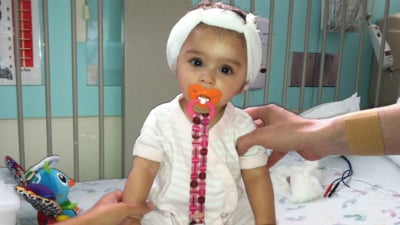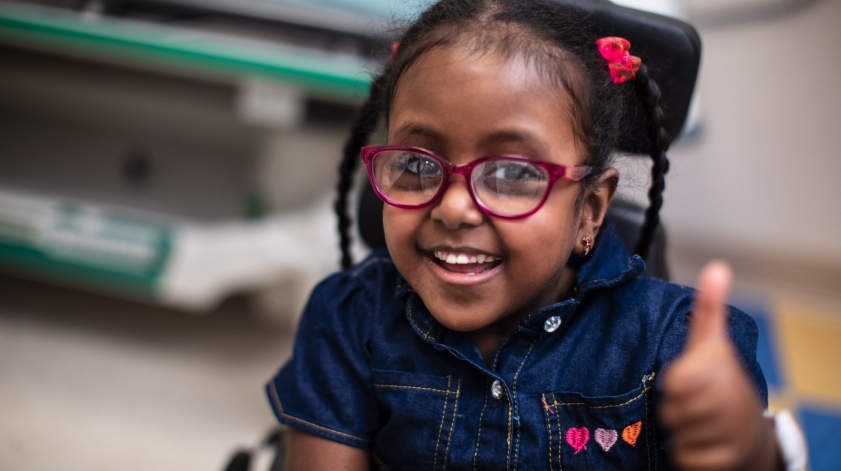Children’s National Hospital audiologists are trained to evaluate hearing from birth to young adulthood. We use both objective and subjective measures to assess auditory status. We utilize different techniques, depending upon your child's developmental/chronological age.
Our Providers
Our pediatric specialists provide personalized care for your child’s physical, mental and emotional health needs.
Contact Information
For appointments, please call 1-888-884-BEAR (2327) and for information, call 202-476-5600.

The Hearing and Speech Center at Children’s National Hospital has a variety of programs and services to help care for and treat your child’s needs. Your child will have access to the latest advances in hearing and speech, with treatments based on our cutting-edge research and our commitment to providing age-appropriate, personalized care for your child.

Our evaluations may include:
- Auditory processing disorder (APD) evaluation
- Automated auditory brainstem response
- Behavioral observation audiometry (BOA)
- Cochlear implant evaluation
- Conditioned play audiometry (CPA)
- Conventional audiometry
- Diagnostic auditory brainstem response
- Otoacoustic emissions (OAE – transient evoked or distortion product)
- Visual reinforcement audiometry (VRA)
- Vestibular and balance evaluation
We provide compassionate support for children and families as they adjust to and manage the challenges of hearing loss. This includes education and assistance with using hearing aids, cochlear implants and other devices.
Your child's doctor will determine specific treatment for hearing loss based on:
- Your child's age, overall health and medical history
- Your child's specific hearing loss
- Your opinion or communication preference
Management of hearing loss may include one or more of the following:
- Hearing aids. We will evaluate your child for hearing aids if needed. Sensorineural hearing loss may be genetic or environmental. It may be present at birth or develop over time due to infections, injury, noise exposure or certain medications.
- Cochlear implants. These surgically- placed devices transmit electrical stimulation to the inner ear. Only certain children are candidates for cochlear implants. Ask your child's doctor for more information.
- Bone conduction hearing aids. Our audiologists are trained in the fitting and management of several types of bone conduction hearing aids for conductive hearing loss and single-sided deafness. We work in conjunction with the Division of Otolaryngology (ENT) to manage children with surgically-implanted devices.






